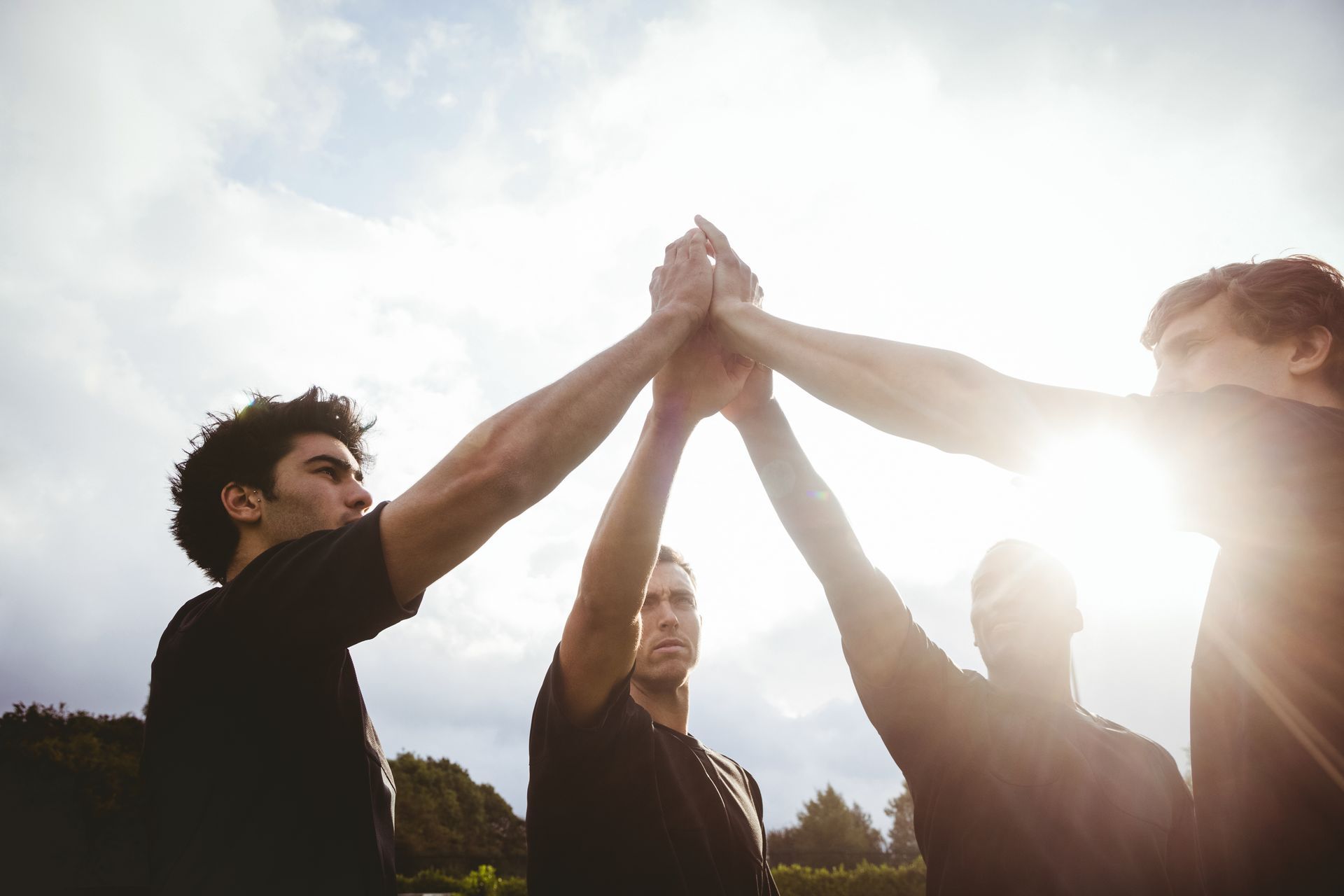Your path,
Your Choices,
Our Guidance
Let us help build the path that works for you
Your Dreams, Your Choices, Our Guidance
At Personal Pathways, we support adults with disabilities and their families who want more control over how support is delivered. Whether you’re exploring the Self‑Determination Program (SDP) or building a meaningful Person-Centered Plan (PCP), we guide you every step of the way—so you can live the life you choose.
Self-determination is an innovative approach to your life vision, dreams, goals, and implementation of them. It provides greater control over the services required for you to reach your life goals, determining what is needed to reach them and how they can be provided. The path you choose is up to you, and it is a chance to share your hopes and dreams in life. Use your imagination and think unconventionally as you think about: What does my best life look like? What do I require to achieve that vision? The concept of self-determination means that you are in control of your hopes, dreams, and destiny. What path will you choose? Let us help by allowing us to guide you on your personal path.
Important information about Self-Determination Programs
Self-Determination Programs
We make the transition into SDP clear and stress-free!
Our facilitators walk you through every step — reviewing your budget, helping you find qualified providers, and connecting you with trusted professionals who can support your goals.
This program is designed to give individuals with disabilities more freedom, control, and authority over the resources allocated for their support. It emphasizes personal choice, control over the financial resources allocated for their care, and the design of a personalized plan that meets their unique needs. The goal is to enable participants to live more independently, achieve their personal goals, and participate fully in their communities.
Independent Facilitator
As your independent facilitator, we advocate for your voice to be heard and your choices respected.
We coordinate with your support team, ensure accountability, and help you stay on track with your plan.
Independent facilitators play a crucial role in the Self-Determination Program by assisting participants in navigating the system, planning their services, and making informed decisions about their care. They act as unbiased guides and advocates, ensuring that the individual's voice is heard and their preferences are respected. Independent facilitators help individuals build a circle of support, connect with community resources, and develop a person-centered plan.
Person Centered Planning
We help you discover your strengths, interests, and goals, and create a plan that highlights who you are and what you want for your future.
Your plan becomes a roadmap for living more independently, building community connections, and reaching your dreams.
At the heart of both the Self-Determination Program and the role of independent facilitators is person-centered planning. This is a process oriented towards understanding the individual's strengths, preferences, needs, and desires. It focuses on empowering the individual to lead the planning process, with the support of family, friends, and professionals. The plan reflects the individual's goals across various aspects of life, including education, employment, health, and community participation.
Empowerment and Inclusion
A fundamental principle underlying the Self-Determination Program, the use of independent facilitators, and person-centered planning is the commitment to empowerment and inclusion. These elements are designed to support individuals with disabilities in becoming more autonomous, self-reliant, and included in their communities. They emphasize the importance of respecting the individual's right to make decisions about their life and ensuring that services and supports are tailored to meet their individual needs and preferences.
Why Families Choose US
20+ years of experience helping individuals and families who are connected with the California’s Regional Center system.
Compassionate and knowledgeable guidance tailored to your unique needs.
Comprehensive support — from the first meeting to implementation.
Commitment to empowerment — you make the decisions, and we support your success.
Message from our founder,
Personal Pathways
It is my belief and experience that you get the most out of life when you are in control and making the decisions to impact it. Personal Pathways consists of high-level professionals with more than 20 years of experience working with all levels of special needs. Our experience ranges from working with infants all the way through transitional-age individuals and those well into adulthood. We are well-versed in assisting clients anywhere along the continuum of services they may require. Allow us to help you create a person-centered plan, enroll in the self-determination program, and serve as your independent facilitator, by contacting us today. You can rest assured that you are working with people whose ethos and mission revolve around seeing you succeed on your own personal path. The choices and decisions you make are an important step in discovering the world around you and finding your place in it.
Focus Areas
Self-Awareness
Self-awareness plays a pivotal role in the lives of individuals with disabilities, serving as a foundation for personal growth, adaptation, and empowerment. By developing a keen understanding of their strengths, limitations, and the unique ways in which they interact with the world, individuals with disabilities can navigate challenges more effectively and advocate for their needs and rights with confidence. This self-awareness fosters resilience, enabling them to identify and leverage supportive resources and relationships, and to pursue goals that align with their capabilities and aspirations. Moreover, it encourages a positive self-concept and helps counteract societal stereotypes and biases, paving the way for a more inclusive and equitable society where every individual's potential is recognized and valued.
Decision-Making
Decision-making is a fundamental right and an essential aspect of independence and autonomy for individuals with disabilities. It plays a crucial role in empowering them to lead fulfilling lives, make choices about their personal and professional lives, and have control over the services and support they receive. The process of making decisions allows individuals with disabilities to express their preferences, values, and aspirations, contributing to their sense of self-worth and dignity. Furthermore, inclusive decision-making processes that accommodate the unique needs of individuals with disabilities can promote social inclusion and equality, ensuring that their voices are heard and valued in the community. By supporting the decision-making capabilities of individuals with disabilities, society acknowledges their competence and potential to contribute meaningfully, paving the way for more inclusive communities that celebrate diversity and respect the rights of all its members.
Goal-Setting
Goal setting is of paramount importance for individuals with disabilities as it serves as a cornerstone for personal development and empowerment. It offers a structured approach for overcoming barriers and achieving success, tailored to each individual's unique challenges and strengths. By setting clear, achievable goals, individuals with disabilities can gain a sense of purpose and direction, enabling them to focus on their abilities rather than limitations. This process fosters independence, boosts self-esteem, and encourages resilience, as each accomplished goal builds confidence and demonstrates the potential for progress. Moreover, goal setting facilitates the identification of necessary support and resources, ensuring that individuals with disabilities can effectively navigate their journey towards personal and professional fulfillment. In essence, goal setting is not just about reaching specific objectives; it's about unlocking the potential within each individual to lead a more satisfying and accomplished life.
Problem-Solving
The importance of problem-solving for individuals with disabilities cannot be overstated, as it is a fundamental skill that enhances autonomy and empowerment in daily life. Effective problem-solving strategies can help individuals navigate challenges related to accessibility, social integration, and personal care, fostering a greater sense of independence and self-reliance. It also promotes critical thinking and adaptive learning, enabling individuals to creatively overcome obstacles and adapt to new situations with resilience. Furthermore, problem-solving skills can improve communication and interpersonal relationships, as they involve understanding different perspectives and finding common ground. Overall, equipping individuals with disabilities with robust problem-solving abilities is crucial for enhancing their quality of life, achieving their goals, and participating fully in society.
Life Skills
Life skills are crucial for individuals with disabilities, serving as a cornerstone for achieving independence, self-reliance, and integration into society. These skills, which range from basic daily tasks like personal hygiene and cooking to more complex competencies like managing finances and effective communication, empower individuals by fostering a sense of autonomy and confidence. For those with disabilities, mastering life skills can dramatically improve the quality of life, opening doors to educational and employment opportunities, enhancing social interactions, and facilitating a more active and engaged participation in community life. Additionally, life skills education for individuals with disabilities promotes inclusivity, reduces dependence on caregivers, and challenges societal barriers, ultimately contributing to a more equitable and accessible world for everyone.
Support
Support for individuals with disabilities is crucial for fostering an inclusive society where every person has the opportunity to participate fully and contribute to their community. Providing tailored support helps remove barriers that may limit individuals' access to education, employment, social activities, and healthcare. This support not only enables individuals with disabilities to achieve their personal and professional goals but also promotes their independence and self-reliance. Furthermore, embracing diversity and ensuring equal opportunities for all individuals, regardless of their physical or mental abilities, enriches the social fabric by fostering empathy, understanding, and respect among community members. Ultimately, support for individuals with disabilities underscores the principle that every person has intrinsic value and the right to live a fulfilling life.
Ready to take charge of your future?
Start your Journey Today
You deserve a life built around your choices.
Let’s make it happen — together
San Diego County:
(619)259-0775
info@mypersonalpathways.com
Mailing Address:
12816 Inglewood Avenue #672
Hawthorne, CA
USA, 90250







